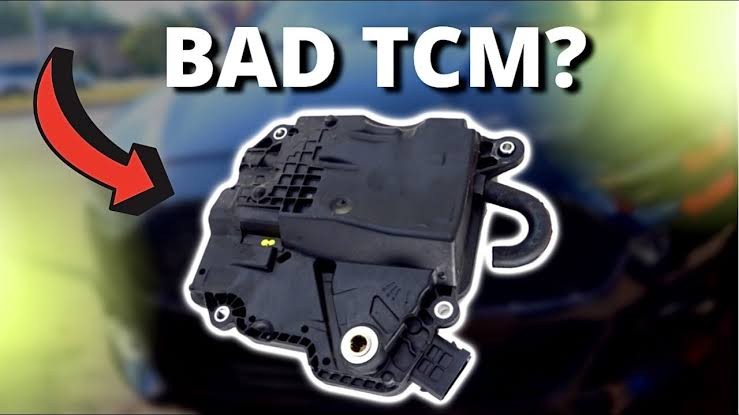According to the National Highway Traffic Safety Administration, transmission-related issues account for approximately 10% of all vehicle malfunctions reported annually.
Your car's Transmission Control Module (TCM) serves as the brain of your automatic transmission system, when it fails, the consequences can be both costly and dangerous.
Understanding Your Transmission Control Module
The TCM is essentially a specialized computer that oversees your automatic transmission operations. It receives data from various sensors throughout your vehicle, interprets this information, and controls critical functions like shift timing, torque converter engagement, and overall shift quality. When functioning properly, it ensures optimal performance, fuel efficiency, and transmission longevity.
Key Symptoms of a Failing TCM
- Warning lights illuminate: The most obvious sign is often the simplest, dashboard warning lights. Your check engine light or a specific transmission warning light may activate. Don't ignore these alerts. They're your vehicle's first attempt to communicate that something's wrong.
- Erratic shifting patterns: Does your transmission seem to have a mind of its own? Unpredictable shifting, difficulty moving into higher gears, or trouble downshifting are telltale signs of TCM failure. You might experience your vehicle suddenly shifting to neutral while driving, a particularly dangerous situation on busy roads or highways.
- Stuck in one gear: Perhaps the most frustrating symptom is when your vehicle becomes stuck in a single gear (often called "limp mode"). This safety default prevents further transmission damage but severely limits your driving capabilities. If you're experiencing this, seek professional help immediately.
- Harsh or delayed gear changes: Your transmission should shift smoothly between gears. When the TCM malfunctions, you might notice jolting or jerking movements during shifts or significant delays between the time you accelerate and when the transmission actually engages the appropriate gear.
- Poor fuel economy: Noticed your gas mileage taking a nosedive? A failing TCM can cause your vehicle to operate in inefficient gear ratios, forcing your engine to work harder than necessary. This increased strain leads directly to decreased fuel efficiency, and more frequent trips to the pump.
What Causes TCM Failure?
Understanding the root causes can help prevent premature failure of this critical component:
- Electrical issues: The most common culprit behind TCM failure is electrical problems. Damaged wiring, loose connections, and short circuits can all disrupt the communication between the module and the various sensors it relies upon. Over time, these electrical irregularities can permanently damage the module.
- Overheating: Excessive heat is the enemy of all electronic components, and your TCM is no exception. A poorly functioning cooling system or placing the TCM near hot components can lead to overheating and eventual failure. Some manufacturers have redesigned TCM placement in later models specifically to address this issue.
- Water and fluid damage: Modern vehicles are designed to keep water and fluids away from sensitive electronic components. However, leaks, flooding, or even heavy exposure to road splash can allow moisture to reach your TCM. Once water penetrates the housing, corrosion and short circuits quickly follow.
- Transmission fluid issues: Dirty or burnt transmission fluid doesn't just harm mechanical components, it can affect electronic parts too. Contaminated fluid can create varnish deposits on sensors, causing them to send incorrect signals to the TCM.
- Age and wear: Like all electronic components, TCMs have a limited lifespan. With time, solder joints can crack, circuit boards can degrade, and connections can loosen, all contributing to eventual failure.
Diagnosing and Addressing TCM Problems
If you suspect your TCM is failing, the first step is proper diagnosis. Modern vehicles store diagnostic trouble codes (DTCs) that can be retrieved using an OBD-II scanner. These codes provide valuable clues about the specific nature of the problem.
However, don't automatically assume you need a new TCM. Many symptoms resembling TCM failure actually stem from other issues like bad sensors, wiring problems, or transmission fluid concerns. A thorough inspection by a qualified mechanic can prevent unnecessary replacements.
TCM replacement costs vary significantly depending on your vehicle make and model. Generally, you can expect to pay between $200-$1,200 for the part alone, with labor adding another $100-$300 to the total.
Preventative Maintenance
While some TCM failures are unavoidable, these preventative measures can extend its lifespan:
- Maintain proper transmission fluid levels and change the fluid according to manufacturer recommendations.
- Keep your vehicle's cooling system in top condition to prevent overheating.
- Address check engine lights promptly, early intervention often prevents minor issues from becoming major problems.
- Consider installing a transmission cooler if you frequently tow heavy loads or drive in extreme conditions.
- Regularly inspect wiring connections and harnesses for signs of wear or damage.
Your vehicle's transmission control module might not be a component you think about often, but its proper functioning is essential for safe, efficient driving. By recognizing the symptoms of TCM failure and understanding its causes, you can address problems early, potentially saving thousands in repair costs and avoiding dangerous roadside breakdowns.

Comments (0)
Please login to join the discussion
Be the first to comment on this article!
Share your thoughts and start the discussion